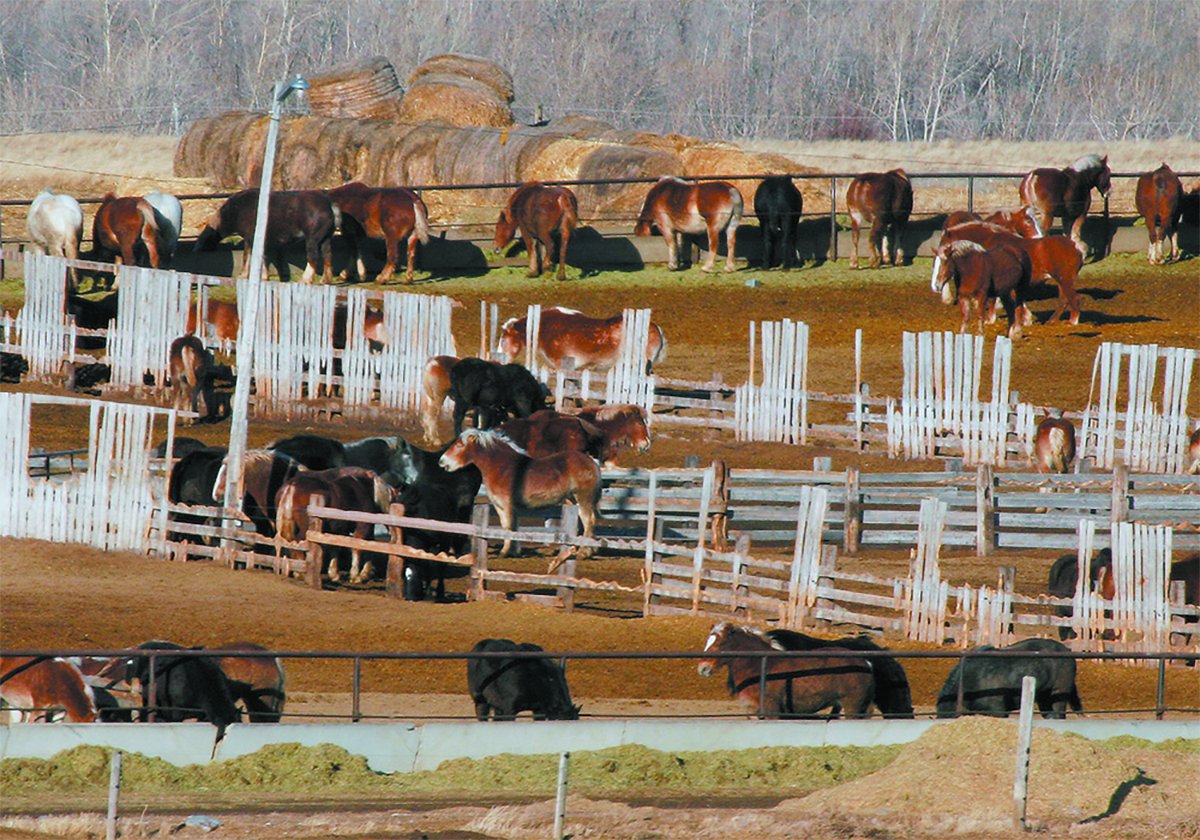An American investigation into the possibility of anti-dumping charges and whether unfair subsidies support Canadian cattle producers is moving ahead full speed.
The investigation was approved by the United States Department of Commerce after a petition from the Ranchers-Cattlemen Action Legal Foundation gathered enough support from producers complaining of unfair trade practices by Canada.
The petitions asked for an anti-dumping investigation on imports of live cattle and a countervailing duty investigation on imports of live cattle from Canada as well as an anti-dumping investigation on imports of live cattle from Mexico.
Read Also

Canada’s slaughter horse industry lacks transparency
The lack of clear reporting and public access to data keeps the industry largely hidden, leaving questions about humane treatment and traceability unanswered.
The next step is a determination by the commerce department on whether the American industry suffered injury as a result of dumped or subsidized imports.
Ultimately, the investigations could lead to orders requiring foreign producers to sell their products at a fair price or for importers to pay the difference to the U.S. government as an additional duty.
Canadian farm programs have been examined before by the International Trade Commission.
“This takes a little different path. The department of commerce will look into allegations on the various subsidies. Most of what they are alleging as a subsidy are the practices of the Canadian Wheat Board,” said Dennis Laycraft, executive vice-president of the Canadian Cattlemen’s Association.
The petition claims the board constrains the volume of barley exports and leads to a lower price in Canada if there are unrestricted exports.
Besides the wheat board, investigations will cover the Net Income Stabilization Account, feeder associations, disease prevention programs like the Ontario rabies control program and some grazing programs, said Laycraft.
“If examined more carefully, all of these things don’t add up to anything of any significance even if they were actionable,” said Laycraft.
The cattlemen’s association and provincial and federal governments are defending the Canadian system. The defence could cost the cattle producers association $1.6 million to $3 million, all of which is contributed by producers.
“The federal government will spend at least that much money and a number of provinces will participate,” he said.
Canadian cattle producers are meeting with the U.S.-based National Cattlemen’s Beef Association executive during their convention in February to express concerns.
The American organization supports some aspects of the petition but said in a news release it is neutral on an anti-dumping petition against Mexican live cattle exported to the U.S.
“We have long had concerns about government intervention in Canadian agriculture, particularly from their wheat board. There are potential subsidies that can make grain cheaper for cattle producers in Canada,” said NCBA president Clark Willingham.
Ironically, this fall a number of feed barley deliveries to southern Alberta came from the Dakotas and Montana to take advantage of the better grain price. No specific tonnage is available.
On Dec. 30, the Lethbridge cash price for feed barley traded at $2.63-$2.68 per bushel, delivered into southern Alberta, said Errol Anderson, a Calgary market analyst.
The board price, according to the most recent pool return outlooks, offers a range of $1.40 to $2.50 per bushel. This does not include freight charges.
“The bottom line is the open market has been and continues to be a premium,” said Anderson.
Feed wheat is selling a little higher but there is not a lot used.
At the elevator, the feed wheat range is $1.68 to $2.71. These prices are used by some feeders to price the small amount of feed wheat used.

















